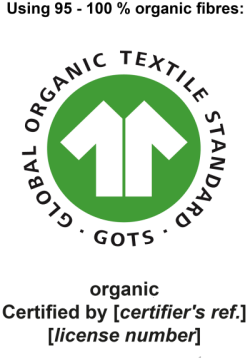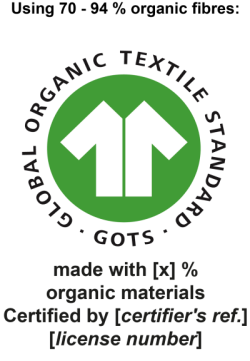The Global Organic Textile Standard (GOTS) is a globally recognised sustainability standard that has been certifying textiles made from organically produced natural fibres since 2006. GOTS tests against environmental and social criteria along the entire textile production and supply chain and thus offers companies the opportunity to meet the increasing demand of environmentally conscious consumers for ecologically, sustainably and socially responsibly produced textiles.
The certifiable end products include yarns, fabrics, fibres, wool, garments and home textiles. However, leather and fur products are not eligible for GOTS certification.
In order to be allowed to advertise with the green-white GOTS label, all companies involved in the processing & manufacturing process as well as in the trade of textiles must be GOTS certified. This requires that all production and processing stages meet the standard criteria.
Only textile products that consist of at least 70% organic fibres can be certified according to GOTS. The standard setter provides two options:
 |
 |
GOTS Bio-Label |
GOTS Standard Label |
The content of the GOTS social criteria is based on the norms, standards and principles of the International Labour Organisation (ILO), the Organisation for Economic Cooperation and Development (OECD) and the United Nations (UN). The Global Organic Textile Standard includes, for example, the following social criteria:
Details and additional criteria can be found in the current GOTS version 6.0.
After contract signing, we first carry out an initial inspection of your business. After obtaining the GOTS certificate, the standard setter requires an annual follow-up inspection by an GOTS approved certification body.
Control Union is accredited by the RVA as an independent certification body for the Global Organic Content Standard (GOTS) under registration number RvA-C412 Products. With our global network of offices in over 80 countries, we can manage your GOTS certification more efficiently and cost-effectively, while meeting the rigorous requirements of professional auditing and certification processes.
We are happy to answer any questions you may have: textilberlin@controlunion.com